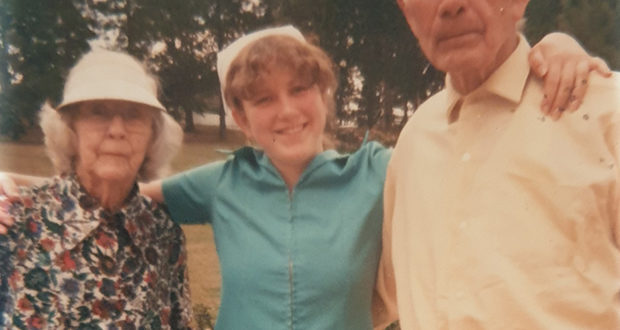For Lynda Walton, a mental health advocate and aged care worker for over 30 years, the most valuable part of her job has been the opportunity to help people.
“I was one of those people that wanted to save the world,” said the 58-year-old, who began covering weekend shifts at her local nursing home when she was twelve.
“It was so shocking, and I always wanted to fix it.”
During the early days, Lynda wasn’t taught whether to consider a person’s culture when comforting a disgruntled resident, or how to communicate with a grieving family after their loved one had moved on: she had to learn it herself.
“I'm an innovator and a people-person and I've sorted out myself by listening to consumers.”
After working as a registered nurse and manager across multiple facilities, Lynda began advising the Ministry of Health and other key bodies to develop specialist mental health services for the elderly.
During that time, public discussions around mental health and aged care were limited. Industry veterans, including Lynda, had long been pushing for a trauma-informed approach to care.
The framework has gained more traction in recent years, amid calls for health professionals to consider the prevalence of trauma and a person’s lived experience when providing care.
“Most people have experienced trauma, or they just don't have a safe space to talk about it, and we need to create those safe spaces,” she said.
“There's a long history of trauma that's been forgotten.
“But it comes back to haunt people when they get cognitive impairment or when they're contemplating their life.”
Older Australians, many of whom have lived through wars, migration, and great social and political change, represent a growing and often overlooked group of trauma survivors.
While exact cases of PTSD are unknown, figures show that almost half of people living in residential aged care suffer from depression. Experts note that less than one per cent of these cases receive psychological treatment.
The arrival of COVID-19 has drawn greater attention towards the issue, with increased isolation, grief and confusion raising public concerns over vulnerable groups.
“I would say easily, 80% of people in residential aged care have depression and significant depression,” said Lynda.
“You go through loss right through your life and then that's, I guess, the last bastion, isn't it? where you lose your independence.
“Even though people's capacity to absorb things might slow, they still feel things the same, and nobody compensates for that.”
Systemic failures to address the mental health needs of older Australians went largely unrecognised prior to the royal commission.
Consequently, the final report confirmed that an overuse of chemical and physical restraints was often being relied on to manage a resident’s behaviour.
Promoting a greater cultural awareness and sensitivity amongst providers, workers and care receivers could help prevent such outcomes in the future, said Lynda.
“It's something I see an awful lot, where it happens with everybody who has any history of trauma, and this goes over years and years of history.
“An Italian lady, they were taking her to church, and she was beside herself because she only had a house dress on.
“But nobody could understand what she was saying so they gave her medication to calm her down instead of helping her change her dress.”
Government responses to this issue have begun to take effect within the sector. As of September 1, providers will be required to maintain a behavioural support plan for any resident who displays psychosocial changes.
Industry attitudes towards mental health have now shifted towards implementing legislation, rather than meeting the needs of the individual, according to Lynda.
“I think most actually in the industry and on the ground have the ethos, but they're all like rabbits caught in the headlights.
“Because this legislation is coming at them and they have their education and they put it across, but it's still around legislation, not around the person.”
Improving mental health care outcomes for older LGBTI+ people in aged care has been another uphill battle, with limited targeted support services and detailed research allocated towards the issue.
“If you walk into any residential aged care facility, it doesn't make it safe for people to talk about their sexuality.
“I'll go to a place and there's a lady who's got a best friend who's a woman that she's lived with all her life.
“And clearly, they've been in a long-term relationship, and it's not acknowledged.”
Reflecting on her career, Lynda is optimistic about the future of mental health reform in aged care. After founding her own consultancy firm in 2017 she said she now prefers work with people “who really want to do something”.
“To me, the most important thing with older people is their initial assessment of their needs and who they are, and really engaging them.
“Working with people with dementia, [you find] they communicate on the most basic level, that level of love.
“Even if they forget they've ever seen you before, if they forget who you are, they never forget how you make them feel. And that memory never goes away.”
Do you have an idea for a story?Email [email protected]
 Aged Care Insite Australia's number one aged care news source
Aged Care Insite Australia's number one aged care news source

